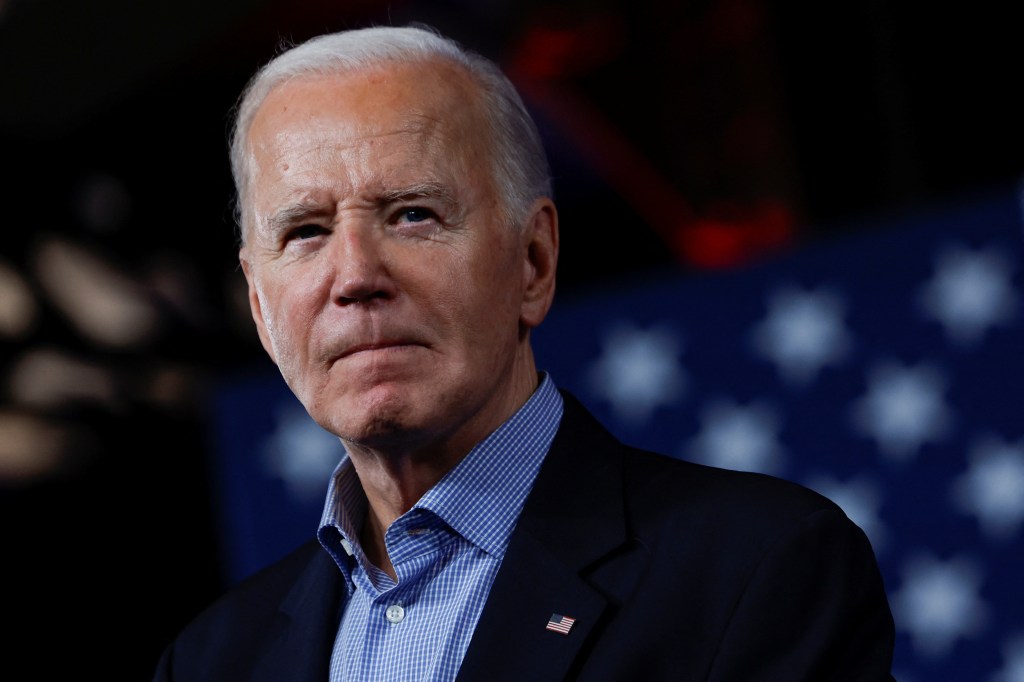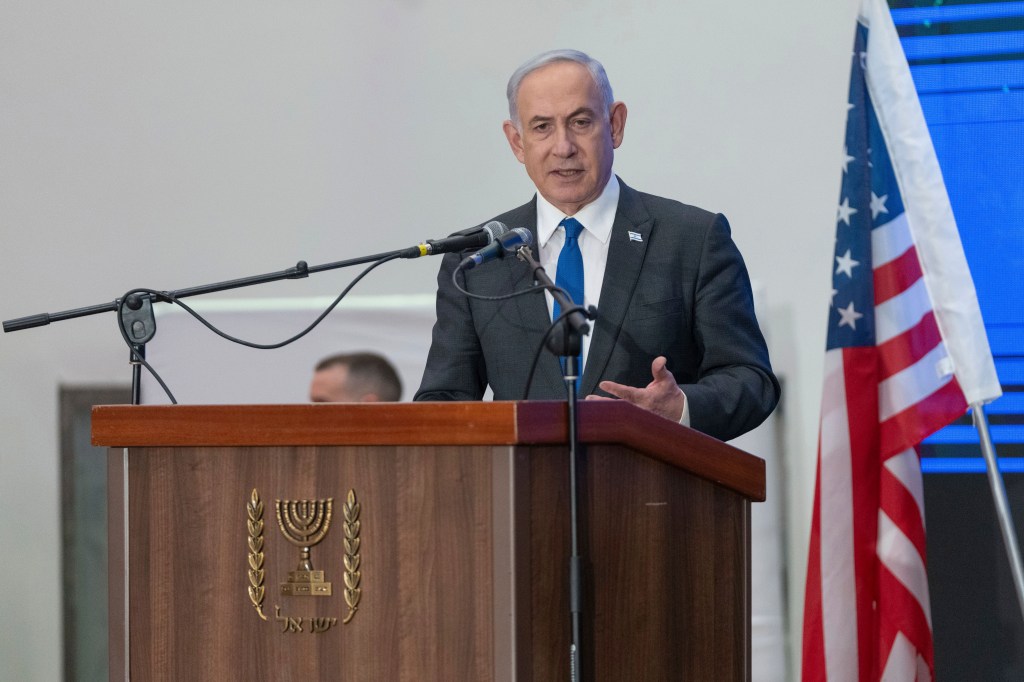Netanyahu ready to defy Biden’s ‘red line’ on impending Rafah invasion
Contact The Author
Israeli Prime Minister Benjamin Netanyahu made clear Sunday that he would be willing to ignore President Biden’s “red line” and go forward with an invasion of Rafah as the Jewish state continues its military campaign in Gaza.
Israel has faced heightened scrutiny as the death toll in the Palestinian enclave continues to rise to at least 30,000, according to Hamas-backed health officials.
In an MSNBC interview Saturday, Biden said he was against further fighting in Rafah and called an invasion of the area a “red line” — but then quickly backtracked to say there was no red line.
“It is a red line, but I’m never going to leave Israel,” Biden said. “The defense of Israel is still critical. So there’s no red line [at which] I’m going to cut off all weapons so they don’t have the Iron Dome to protect them.”
Netanyahu said he didn’t care whether Biden was in favor of military action in Rafah, and pointed to the Oct. 7 massacre that killed 1,200 Israelis and saw more than 200 kidnapped.
“We’ll go there. We’re not going to leave,” Netanyahu said in an interview with Politico’s parent company, Axel Springer. “You know, I have a red line. You know what the red line is, that Oct. 7 doesn’t happen again.”
The Israeli leader also told the publication he had quiet support from several Arab leaders to press forward with Israel’s war on Hamas.
“They understand Hamas is part of the Iranian terror axis,” he said.
The White House has urged Netanyahu against launching a major offensive in Rafah before coming up with a way to evacuate civilians in the part of Gaza that has yet to be invaded.
More than half of the 2.3 million Palestinians residing in Gaza have been sheltering in the Rafah area.
Last month, the Israel Defense Forces claimed it had killed about 12,000 Hamas terrorists since the war began, close to half of its estimated members.
Netanyahu has said 18 of Hamas’ 24 battalions have been destroyed, but that four of the six units remaining are believed to be in Rafah.
Netanyahu told Axel Springer the fighting could be over in “maybe six weeks, maybe four.”
Israel War Update
Get the most important developments in the region, globally and locally.
Thanks for signing up!
Israeli forces quickly entered Gaza following the Oct. 7 sneak attack.
Also Sunday, the head of the Senate Intelligence Committee said on CBS’ “Face the Nation” that Israel’s attempt to eliminate all of Hamas is not “a realistic goal.”
“Meeting with folks in Israel, in the military community, in the intelligence community, the idea that you’re going to eliminate every Hamas fighter, I don’t think is a realistic goal,” Sen. Mark Warner (D-Va.) said.
Meanwhile, food and drinking water are becoming scarce in the Gaza Strip, and malnutrition is on the rise, according to the World Health Organization.
Aid has been slow to reach the region.
Between Feb. 24 and March 3, fewer than 1,000 trucks total entered Gaza — far below the required 500 per day, CNN reported, citing a UN official.
Some countries, including the US, have started delivering aid via air, but road access remains crucial, the agency said.
The US has also started efforts to build a temporary port to deliver aid by sea.
With Post wires



















